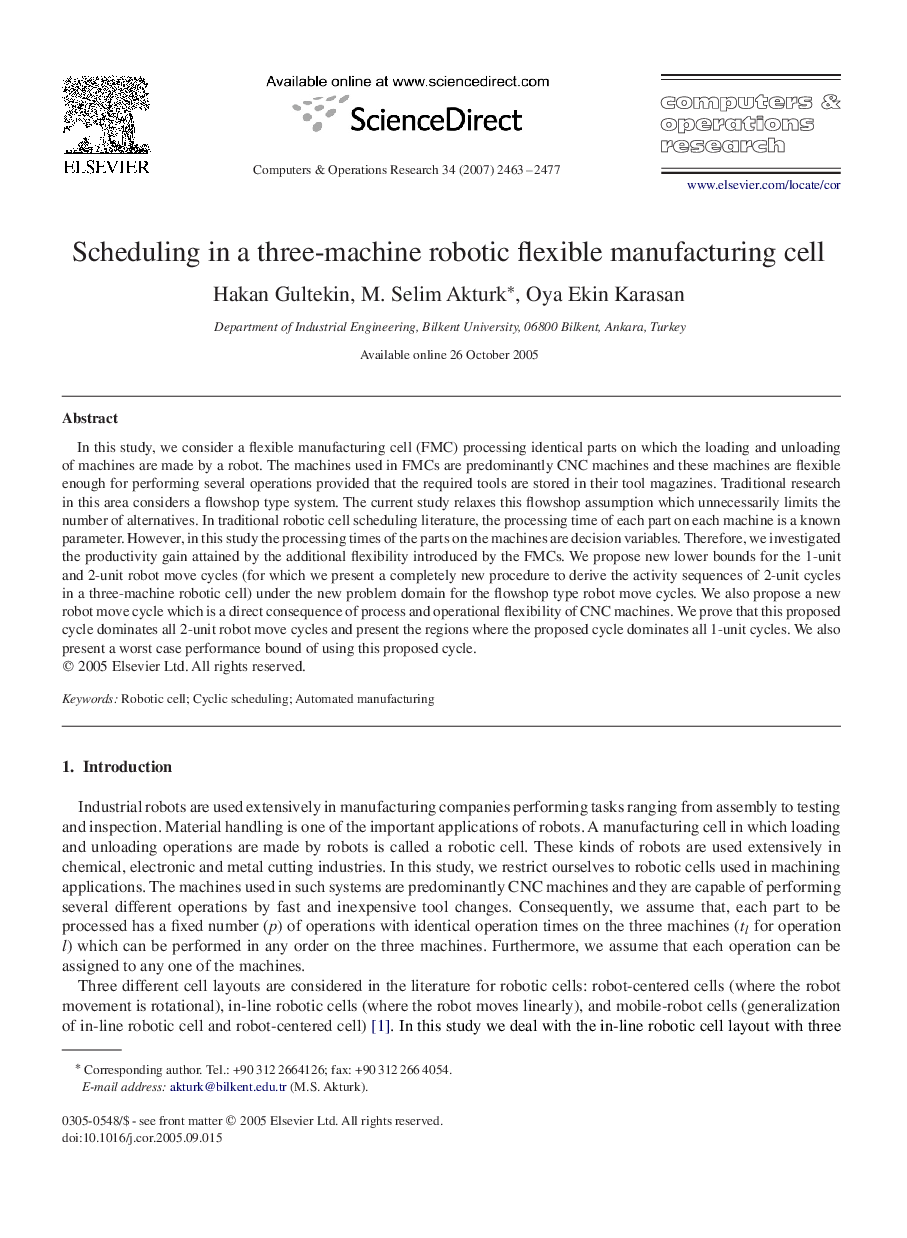| Article ID | Journal | Published Year | Pages | File Type |
|---|---|---|---|---|
| 474261 | Computers & Operations Research | 2007 | 15 Pages |
In this study, we consider a flexible manufacturing cell (FMC) processing identical parts on which the loading and unloading of machines are made by a robot. The machines used in FMCs are predominantly CNC machines and these machines are flexible enough for performing several operations provided that the required tools are stored in their tool magazines. Traditional research in this area considers a flowshop type system. The current study relaxes this flowshop assumption which unnecessarily limits the number of alternatives. In traditional robotic cell scheduling literature, the processing time of each part on each machine is a known parameter. However, in this study the processing times of the parts on the machines are decision variables. Therefore, we investigated the productivity gain attained by the additional flexibility introduced by the FMCs. We propose new lower bounds for the 1-unit and 2-unit robot move cycles (for which we present a completely new procedure to derive the activity sequences of 2-unit cycles in a three-machine robotic cell) under the new problem domain for the flowshop type robot move cycles. We also propose a new robot move cycle which is a direct consequence of process and operational flexibility of CNC machines. We prove that this proposed cycle dominates all 2-unit robot move cycles and present the regions where the proposed cycle dominates all 1-unit cycles. We also present a worst case performance bound of using this proposed cycle.
